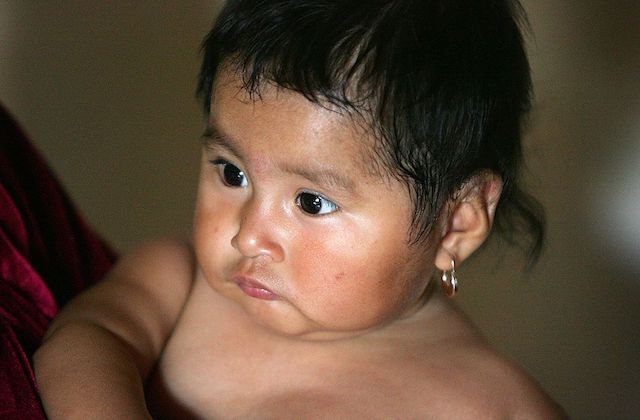A new study shows that the presidency of Donald Trump—a tenure defined in part by restrictive executive orders against immigrant populations—has had a negative effect on the nation’s youngest people: babies. His election, researchers say, may have led to a rise in premature births for Latinx people across the United States.
According to a study released on Friday (July 19) in medical journal JAMA Network Open, in the nine months following November 2016—which is when Trump was elected—there were 3.2 percent to 3.6 percent more preterm births than the statistical norm for Latinx children. That translates to an additional 2,337 preterm births of Latinx babies between November 2016 and July 2017.
For the study, researchers from Stony Brook University, University of California and Johns Hopkins University analyzed monthly data on preterm births in the United States from January 2009 through July 2017. Reports CNN:
rnt
In the study, a preterm birth was defined as a live birth before 37 weeks' gestation, and the researchers took a close look at how many of those births occurred among mothers who identified themselves as Hispanic on their child's birth certificate.
t
The researchers found that preterm births represented 11 percent of births to boys and 9.6 percent of births to girls among the Latina women, compared with 10.2 percent and 9.3 percent, respectively, among other women, between 2009 and 2017.
Babies who are born preterm—meaning earlier than 37 weeks gestation—may have health problems that can include long-term intellectual and developmental disabilities, as well as lung, hearing or vision problems. According to the March of Dimes, 1 in 10 babies in the United States is born prematurely.
Trump ran on a campaign platform that criminalized Latinx people and promised to keep—and kick—them out of the country. On the very first day of his campaign he said of Mexican immigrants in the U.S., “They're bringing drugs. They're bringing crime. They're rapists.” His rhetoric held throughout the election and expanded to include Latinx people in general.
"Because mothers and children are particularly vulnerable to psychosocial stress, our findings suggest that political campaigns, rhetoric and policies can contribute to increased levels of preterm birth," said Alison Gemmill, an assistant professor at the Johns Hopkins Bloomberg School of Public Health and lead author on the study.
These findings are supported by another study on preterm births and the presidential election. Last year, a study published in the Journal of Epidemiology and Community Health found that in New York City, the preterm birth rate increased from 7 percent to 7.3 percent in this same time period, and the most significant increase was among pregnant Latinx people. Nancy Krieger, one of that study’s authors and a professor of social epidemiology at the Harvard T.H. Chan School of Public Health, told CNN that the research should be used to emphasize how political rhetoric can impact others—and as a reminder for physicians to take these stressors into account when providing care.
